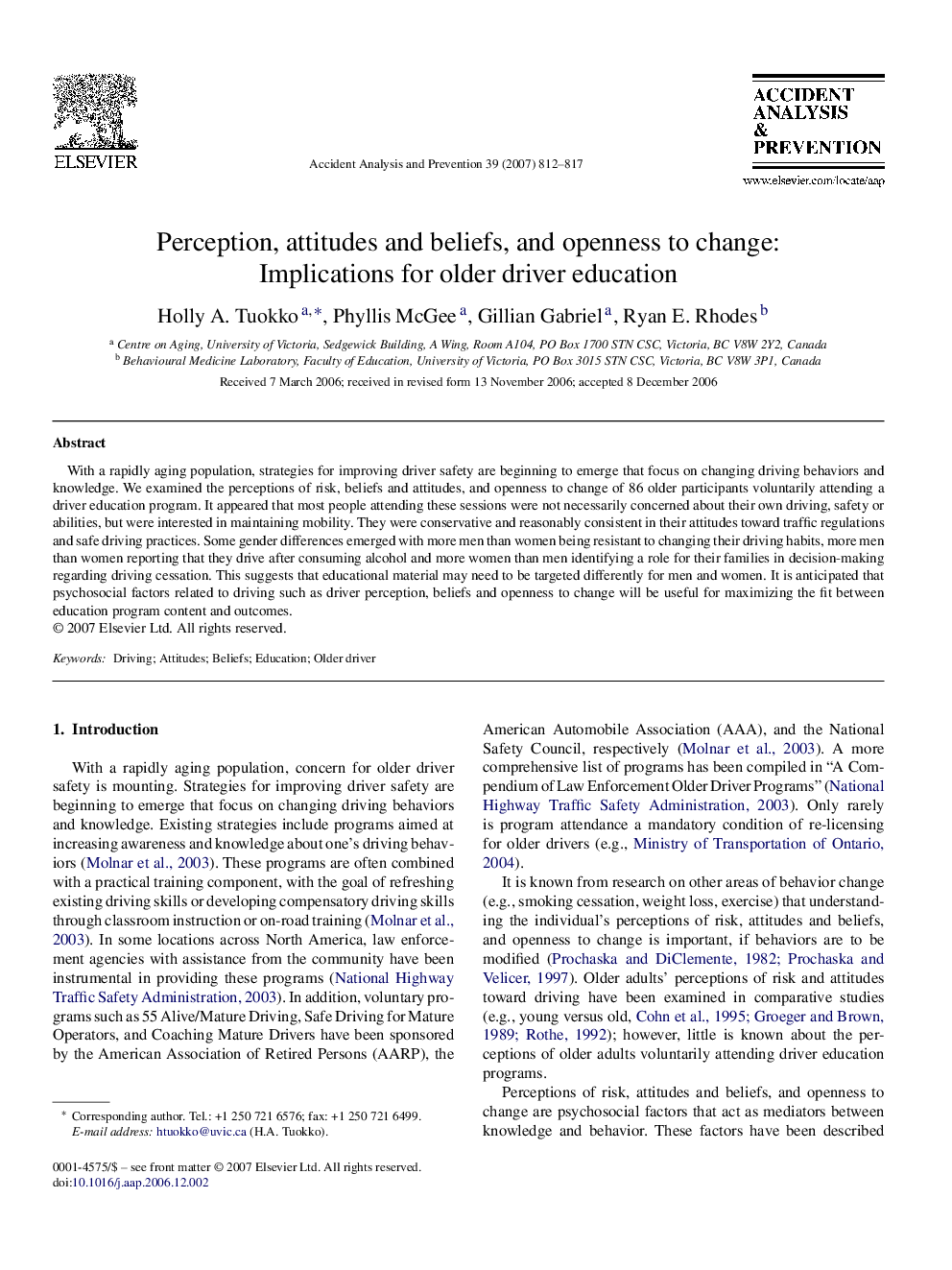| Article ID | Journal | Published Year | Pages | File Type |
|---|---|---|---|---|
| 573449 | Accident Analysis & Prevention | 2007 | 6 Pages |
Abstract
With a rapidly aging population, strategies for improving driver safety are beginning to emerge that focus on changing driving behaviors and knowledge. We examined the perceptions of risk, beliefs and attitudes, and openness to change of 86 older participants voluntarily attending a driver education program. It appeared that most people attending these sessions were not necessarily concerned about their own driving, safety or abilities, but were interested in maintaining mobility. They were conservative and reasonably consistent in their attitudes toward traffic regulations and safe driving practices. Some gender differences emerged with more men than women being resistant to changing their driving habits, more men than women reporting that they drive after consuming alcohol and more women than men identifying a role for their families in decision-making regarding driving cessation. This suggests that educational material may need to be targeted differently for men and women. It is anticipated that psychosocial factors related to driving such as driver perception, beliefs and openness to change will be useful for maximizing the fit between education program content and outcomes.
Related Topics
Physical Sciences and Engineering
Chemical Engineering
Chemical Health and Safety
Authors
Holly A. Tuokko, Phyllis McGee, Gillian Gabriel, Ryan E. Rhodes,
